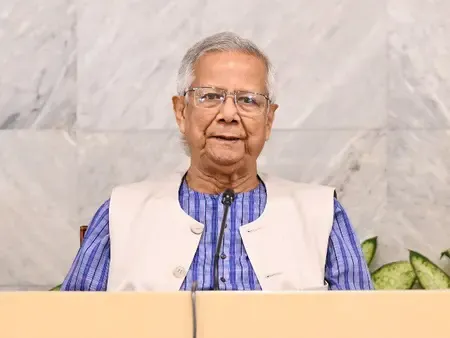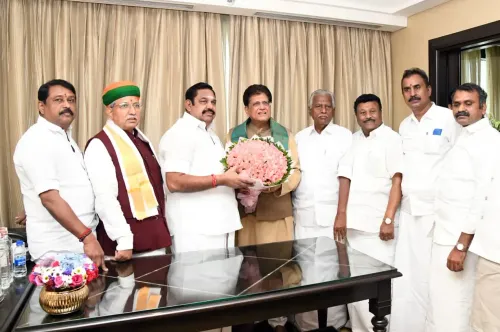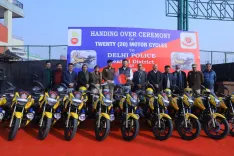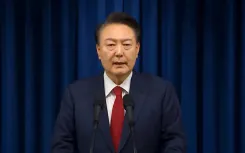How can NITI Aayog Reform R&D in Government Institutions?
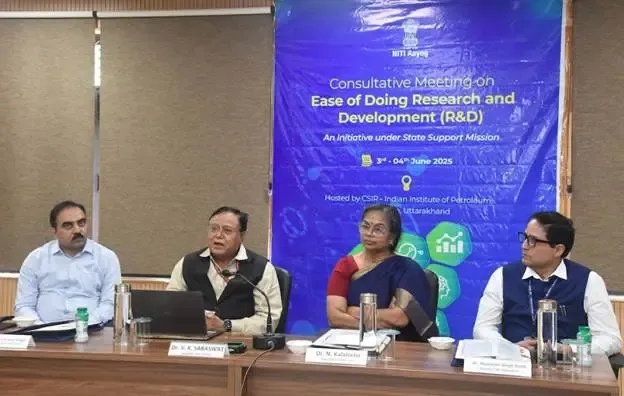
Synopsis
Key Takeaways
- Urgent reforms needed in government-funded R&D institutions.
- Emphasis on decentralized decision-making and timely funding.
- Importance of collaboration between industry and academia.
- Focus on retaining young talent in Indian research.
- Strengthening infrastructure in tier 2 and tier 3 institutions.
New Delhi, June 4 (NationPress) NITI Aayog member Dr. V.K. Saraswat on Wednesday highlighted the urgent necessity to reform India’s government-funded Research and Development (R&D) institutions into vibrant, autonomous, and mission-oriented ecosystems.
Speaking at the opening session of the two-day consultative meeting focused on enhancing India’s R&D framework in Dehradun, Saraswat insisted that scientific inquiry must be liberated from bureaucratic obstacles and inflexible hierarchies, advocating instead for decentralized decision-making, prompt funding, and accountability based on performance.
Dr. Saraswat also reaffirmed NITI Aayog’s dedication to fostering systemic reform through ongoing collaboration with stakeholders and policy recommendations grounded in evidence.
This initiative by NITI Aayog aims to foster a progressive, innovation-centric, and resilient research framework in the nation, particularly targeting improvements in the capacity of government-funded R&D institutions and laboratories.
Dr. N. Kalaiselvi, Director General of CSIR and Secretary of DSIR, praised NITI Aayog’s initiative to host this vital dialogue, underscoring the need for collaborative governance to tackle enduring structural challenges.
She noted the necessity to revitalize R&D infrastructure, especially in tier 2 and tier 3 institutions, while strengthening partnerships between industry and academia to enhance impactful translational research. Dr. Kalaiselvi also emphasized aligning national scientific endeavors with local innovation demands.
Professor Ashutosh Sharma, President of the Indian National Science Academy (INSA), highlighted the human aspect of science, advocating for increased trust in researchers, diminished micromanagement, and the development of flexible career pathways in science. He stressed the importance of retaining young talent within Indian institutions by providing improved opportunities, mentorship, and global exposure.
The ongoing meeting will cover topics such as institutional governance, researcher mobility, translational research, and bolstering public-private cooperation.
Under the leadership of Dr. V.K. Saraswat, Member of NITI Aayog, this two-day meeting builds on the outcomes of the first consultative dialogue held in May 2025 at Raj Bhawan, Lucknow, and represents the second phase of a series of regional meetings aimed at addressing systemic hurdles in India’s research and development ecosystem.




